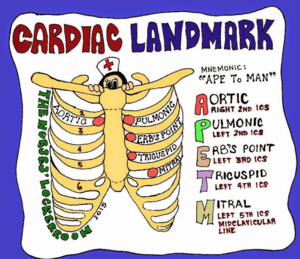14035424
Nursing Implications for surgical risk factors
Resource summary
| Question | Answer |
| Risks associated with advanced age and general surgical procedures | decreased tolerance to anaesthesia & post-op meds, delayed wound healing |
| Risks associated with obese individuals undergoing general surgical procedures | Inc. risk of delayed wound healing, wound dehiscence, infection, pneumonia, atelectasis, thrombophlebitis, arrhythmias & heart failure |
| Nursing implications of obese individuals undergoing surgery | - promote weight loss if time permits. - Post-op monitoring of wound, pulmonary and cardiovascular complications - Encourage coughing, turning, diaphragmatic breathing exercises and early ambulation |
| Risks associated with malnourished individuals undergoing general surgical procedures | May not have sufficient nutrient reserves to allow the body to recover from surgery effectively; risk of organ failure and/or shock. Increased metabolic demands may result in poor wound healing and infection |
| Nursing implications of malnourished individuals undergoing surgery | Discuss treatment with surgeon and dietitian, promote weight-gain by providing well-balanced high energy diet. Administer nutritional supplements and IVF feeding if necessary. Daily weights and kj counts as necessary. |
| Risks associated with dehydrated/ electrolyte insufficient/imbalanced individuals undergoing general surgical procedures | Depending on the severity or type of electrolyte imbalance, cardiac arrhythmia or heart failure may occur. Can also result in liver and renal failure. |
| Nursing implications of dehydrated/electrolyte insufficient individual undergoing surgery | Administration of IVF as ordered. Monitoring weights and fluid balance. |
| Risks associated with those with renal/liver dysfunction undergoing general surgical procedures | Poor toleration of anaesthesia, fluid/electrolyte imbalances, acid-base imbalances, decreased metabolism and excretion of medication, increased risk of haemorrhage & delayed wound healing |
| Nursing implications for those with liver/renal dysfunction undergoing surgery | Monitor for fluid volume overload, intake and output and response to medication. Evaluate closely for drug side effects and evidence of alkalosis or acidosis. |
| Risks associated with those with cardiovascular disorders undergoing general surgical procedures | Increased risk of haemorrhage and shock, hypotension, thrombophlebitis, PE, stroke & fluid volume overload. |
| Nursing implications for individuals with cardiovascular disorders undergoing surgery. | - Diligent monitoring of vital signs, and general condition of the individual. Skin colour assessment, chest pain, lung congestion and assessment for peripheral oedema. Observe for hypoxia, and encourage early ambulation/ leg exercises to decrease the risk of vascular issues. |
| Risks associated with individuals with respiratory disorders undergoing general surgical procedures | One of the most common types of risk associated with surgery. Respiratory depression is more likely to occur in people with COPD as well as bronchitis, atelectasis & pneumonia |
| Nursing implications for those with respiratory disorders undergoing surgery | Close monitoring of respiration, pulse and breath sounds. Encourage coughing and deep breathing exercises. For smokers: encourage cessation or decrease. |
| Risks associated with diabetic individuals undergoing general surgical procedures | Increased risk of fluctuating BGLS which can lead to hypoglycemia or ketoacidosis. Increases the risk for cardiovascular complications, delayed wound healing and infection. |
| Nursing implications for diabetic individuals undergoing surgery. | close monitoring of BGLs , monitor for symptoms of hypo or hyperglycaemia. Administer insulin as charted. Encourage diabetic meals and education |
| Risks associated with alcoholic individuals undergoing general surgical procedures | Increased anaesthesia may be required. Individual may experience alcohol withdrawal. Delayed wound healing and haemorrhage can occur due to liver damage. |
| Nursing implications for alcoholic individuals undergoing surgery | - Monitor for signs of alcohol withdrawal, encourage balanced diet. Monitor for wound complications. Administer supplementary nutrients parenterally as required. |
| Risks associated with individuals that smoke undergoing general surgical procedures | Increased risk of all respiratory complications due to increased mucous secretions and decreased ability to expectorate |
| Nursing implications for smoker's undergoing surgery | Encourage cessation. Monitor closely for respiratory complications. Encourage deep breathing and coughing and increase daily fluids to 2.5 - 3 litres to thin secretions. Nicotine replacement therapy may help individuals to tolerate withdrawal during the postoperative period. |
Want to create your own Flashcards for free with GoConqr? Learn more.

